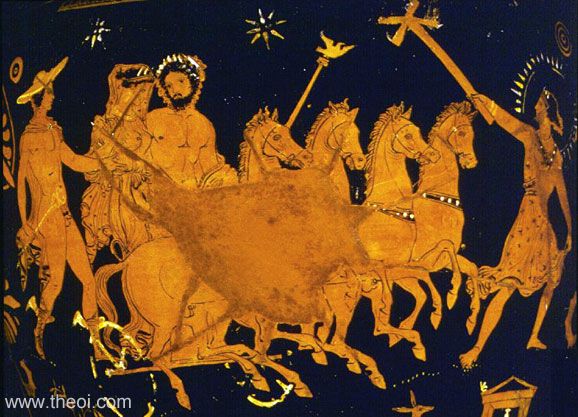One branch of my Family is from Montemarano, where Carnevale still lives, or in this case, where it also dies. When "lent" comes around and Catholics are pledging to do without, those in Montemarano keep to the old ways. The Sunday after Ash Wednesday (which we've already discussed as an ancient pre-christian ritual), we find the people of Montemarano still partying! Drinking! Obscenities! Drinking! Tawdry jokes! Drinking! Commedia! Drinking! Dancing! Drinking!
The effigy of the King of Carnevale is given a funeral. Men dressed as butchers read the King's Last will and testament where different parts, such as the brain, the heart, the guts, etc, are given to different people in the community. There's local and political satire involved as well. This isn't a kids show ;)

The effigy is processed through the streets in a coffin (with his huge phallus sticking up high above the box). Following the coffin are men in drag playing the parts of the King's wife, mother, sisters, mother in-law, aunts, and so on. They comically mourn, weep, lament and wail (with lots of profanity thrown in). There are two versions, one for the kids, one for the adults.
The effigy is set on fire, symbolizing the sacrificed King returning to the land. Everyone then eats, drinks and parties! And dances!
Oh, the dancing! Lead by Pulcinella, we follow the King, through ecstatic dancing, on his journey down into the underworld and back up again.
So what's been happening since the last big festival?
Saturnalia, dark of winter, Parentalia, Carnevale, Ash Wednesday, then... March!
The ashes not only remind us of mortality, they also connect us to the earth which is about to be worked. Mars, for whom March was named, is a God of Fertility, a son born of Virgin Goddess, Hera. The period known as "lent" is when we're cleaning up the land from the Winter and preparing for the planting season. Mars will soon be petitioned by his priests, the Salii via dance after the seed has been sewn. Before that, however, we have the old season which must be cleared up and extinguished. As we begin to work the thawing land, we have the Winter King descend, to later rise up as the Solar King in the plant to be sacrificed when reaped and consumed, then reborn again... and so on.
That's what we do today. Farewell, Carnevale! Time to get to work!
